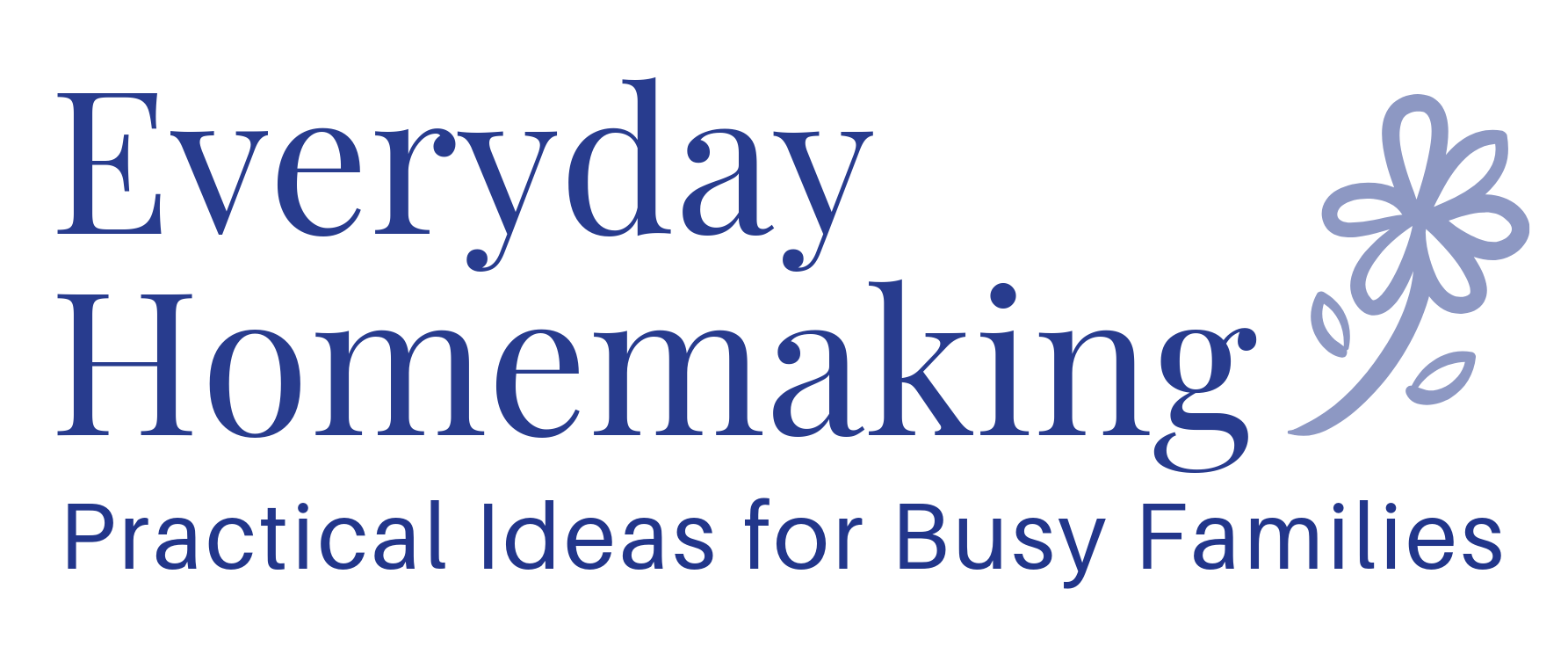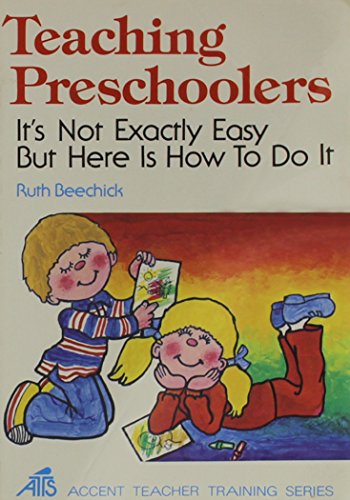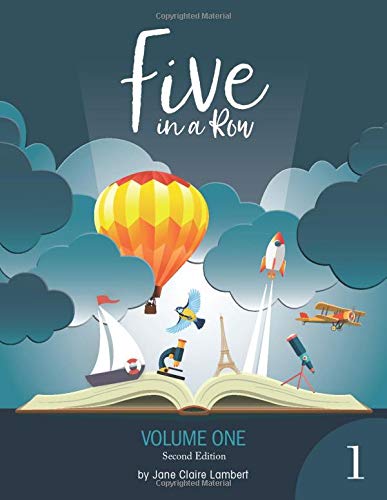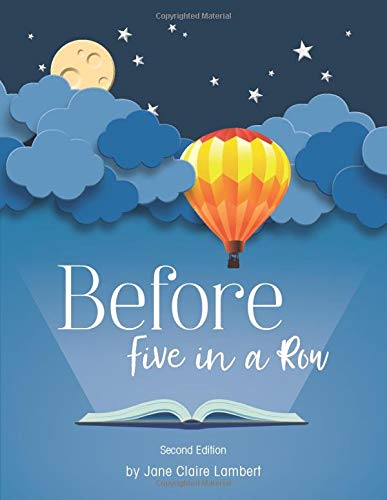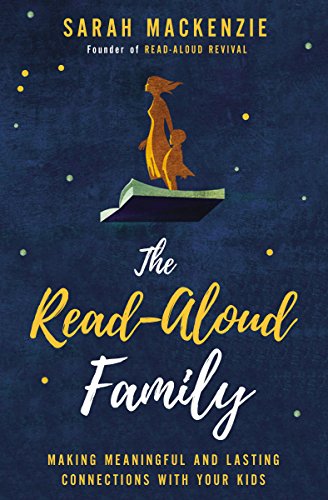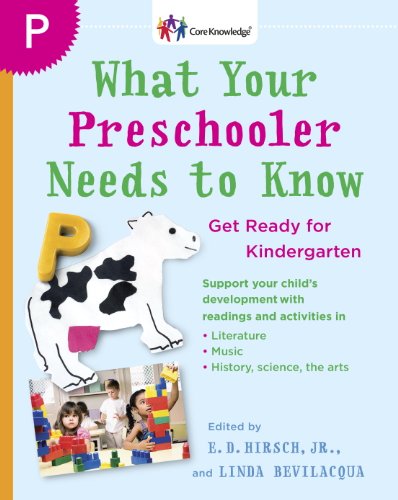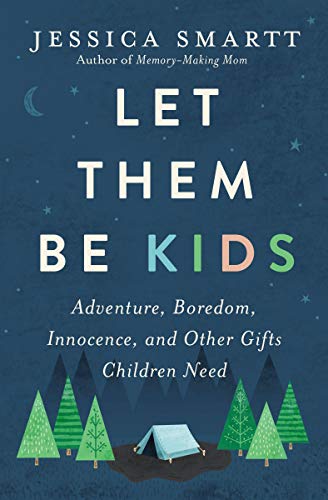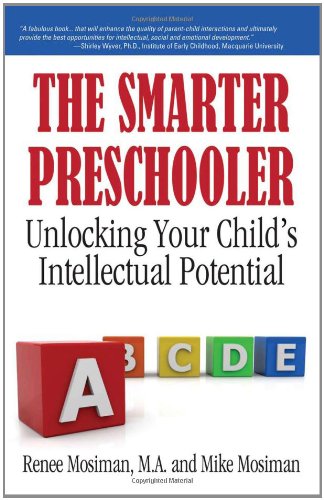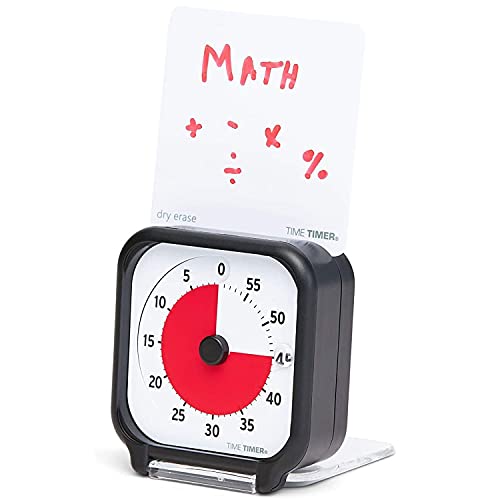If nobody told you that when your child turned five years old, he had to go to school, what would you do with him? You’ve actually been his first teacher these past several years, so what have you been doing with him? What works well in the rhythm of your family and in conjunction with his interests and ability levels? Now, how can you simply make that more intentional? (Blatant ad: If you need help, I do offer a consulting service!)
Is my child “ready” for kindergarten?
In many areas, preschool is the new kindergarten, so evaluate any suggestions based on your own child’s development. While your everyday interactions are laying early foundations for language and math and other academic subjects, a focus in the early years might be on social and emotional and character development, as well as self care and life skills. For example, for kindergarten readiness, you might — through everyday activities — teach your child to:
- Get dressed largely on his own (but may still need help with zippers or buttons or shoes)
- Pull his pants up and down
- Open his juice box at lunch
- Take care of bathroom needs, including hand washing
- Recite his name, parents’ name(s), age, phone number, address
- Take turns/wait his turn
- Use appropriate manners for various situations
- Treat others with kindness and honor
- Use his words to express his needs or feelings
- Count to twenty
- Recite the alphabet and possibly recognize the shapes and sounds of the letters
- Recognize and name basic shapes
- Follow simple rules and basic directions
- Use scissors, crayons, pencil, and other basic tools
- Ask for help when needed
These are just a few; for more detailed suggestions:
Please hold these loosely and remember that children learn at vastly different rates in these early years, so you are looking for generalities in these checklists. You can simply weave these teachable moments into the fabric of your day (vs creating lesson plans!).
What does kindergarten look like?
A primary goal at the kindergarten level is generally to offer lots of experiences – many “hooks” on which to hang future learning. As Renee and Mike Mosiman advocate in their book, The Smarter Preschooler, children in preschool and kindergarten — and even into primary school — benefit more from an intellectually stimulating environment rather than an intellectually demanding environment.
Practically speaking, the kindergarten day itself might consist of just one hour — or maybe two — of intentional one-on-one instruction, possibly broken into 15-20 minute blocks. (One-on-one instruction refers to sitting down with your child and teaching a specific lesson on letter formation or matching a number to a set of objects, for example. It can also include crafts, projects, or anything else structured — or even just read-aloud time!). An hour is usually plenty, unless your kiddo really wants to keep going! Did you know that an hour of one-on-one instruction is roughly the equivalent of three hours in a classroom setting?
At this age, any concentrated learning will likely need to be interspersed with some brain breaks or wiggle time.
But that isn’t all that makes up the kindergarten day!
Young children need lots of opportunities for movement and time to discover their world, so part of the day could be comprised of purposeful, exploratory, and physical play. See this article for more info: What to Do with Your Early Learner (This article is a good starting point for you. I know some of these resources say “preschool,” but a lot of the principles are applicable even into early primary school years.) Also check out Learning through Play.
At this age, your child’s play is still his work, and he is learning so much through play and through everyday activities.
I am a huge fan of read-alouds combined with play-based learning, so I encourage you to read to your child daily! For ideas on what to read, how to read, and more, check out Read Aloud to Build Skills and Relationships. Hearing good literature read aloud fosters in children a love for language, builds vocabulary, motivates them to read, and encourages them to use their imagination.
 Resources for young learners
Resources for young learners
Your child can learn the basics of math and language arts (skills subjects) and other subjects through everyday or minimally structured activities:
- Learning through Play
- Everyday Math for Young Learners
- Language Arts skill builders
- Is My Child Ready to Read?
- Civics for Preschool through Middle School
- Teaching Geography
- What to Do with Your Young Learner (Says preschool but the concepts apply into primary)
- What Should I Be Teaching? (Includes grade-level skills checklists at the end of the article that can give you an idea of what a typical K or 1st grader may learn in a conventional classroom; hold these lists loosely, but they can give you a what-comes-next idea for the skills subjects of math and language arts, in particular.)
- What about Socialization?
 But if you feel more comfortable with something more focused and want something “outlined” for you, you might appreciate my video workshop, Exploring Curriculum Options. Here are some links to check out:
But if you feel more comfortable with something more focused and want something “outlined” for you, you might appreciate my video workshop, Exploring Curriculum Options. Here are some links to check out:
- Five in a Row unit studies based on classic children’s books (add math and phonics)
- My Father’s World all inclusive
- A Year of Playing Skillfully play-based, activities-based, and nature-focused learning for preschool through age 8
- Add the Wonder unit studies (nature based; add math and language arts) preschool through 8th grade
- Timberdoodle can be all-inclusive; secular version available; more of a STEM focus than some
- Gather Round Homeschool unit studies; add math
- Queen Homeschool (Charlotte Mason approach) all inclusive
- The Three R’s of Learning by Ruth Beechick (math, language, and reading intro for K-3rd)
- Mommy, Teach Me (Montessori approach) by Barbara Curtis
- Discovery K12 is an online curriculum, more conventional (but free) www.Discoveryk12.com
- Easy Peasy All-in-One Homeschool is another online freebie
For math & language arts, some items to check out:
- Learning Language Arts through Literature lesson planned for you; all LA subjects integrated into one lesson each day
- Language Lessons for Little Ones Queen Homeschool
- Language and Thinking for Young Children & The 3 Rs of Learning (preschool-2nd)
- Language Lessons for Today grades 2 & up
- The Logic of English
- Explode the Code
- Miquon Math hands-on, Montessori-ish
- Shiller Math hands-on, Montessori
- Making Math Meaningful workbook approach, literally scripted for the parent
- Life of Fred Math math in a story format
- Right Start Math hands-on math
- Math-U-See hands-on math

Some books for you (as a homeschool parent) that may be encouraging:
- The Unhurried Homeschooler by Durenda Wilson (short but powerful; I read the whole book while my banana bread baked)
- Educating the WholeHearted Child by Clay and Sally Clarkson
- Mommy, Teach Me! by Barbara Curtis
You are building “hooks” on which he can hang his future learning!
As you consider curriculum options for your kindergartner, remember that your child’s most important needs at this stage aren’t found in a textbook—they’re met through meaningful connection, hands-on exploration, and a nurturing environment where learning is a natural extension of daily life. Rather than focusing on checking every academic box, aim to cultivate a love for learning, build strong character foundations, and enjoy this sweet season together. With gentle guidance and a bit of creativity, you can give your child a rich and joyful beginning to his educational journey—one that starts right at home.
The Three R’s Language and Thinking for Young Children
Language and Thinking for Young Children Heart and Mind: What the Bible Says about Learning
Heart and Mind: What the Bible Says about Learning Teaching Kindergartners
Teaching Kindergartners A Biblical Home Education: Building Your Homeschool on the Foundation of God’s Word
A Biblical Home Education: Building Your Homeschool on the Foundation of God’s Word Teaching Preschoolers: It’s Not Exactly Easy but Here Is How to Do It (Accent teacher training series)
Teaching Preschoolers: It’s Not Exactly Easy but Here Is How to Do It (Accent teacher training series) Homeschooling Methods: Seasoned Advice on Learning Styles
Homeschooling Methods: Seasoned Advice on Learning Styles A Home Start in Reading (Grades K-3)
A Home Start in Reading (Grades K-3) Strong Start in Language: Grades K-3 (Three R’s Ser.) (Three R’s Series)
Strong Start in Language: Grades K-3 (Three R’s Ser.) (Three R’s Series) Language Wars and Other Writings for Homeschoolers
Language Wars and Other Writings for Homeschoolers Slow and Steady Get Me Ready by June Oberlander (Dec 1 2002)
Slow and Steady Get Me Ready by June Oberlander (Dec 1 2002) Five in a Row Volume One Second Edition
Five in a Row Volume One Second Edition Before Five in a Row: Second Edition
Before Five in a Row: Second Edition Teaching from Rest: A Homeschooler’s Guide to Unshakable Peace
Teaching from Rest: A Homeschooler’s Guide to Unshakable Peace The Read-Aloud Family: Making Meaningful and Lasting Connections with Your Kids
The Read-Aloud Family: Making Meaningful and Lasting Connections with Your Kids What Your Preschooler Needs to Know: Get Ready for Kindergarten (The Core Knowledge Series)
What Your Preschooler Needs to Know: Get Ready for Kindergarten (The Core Knowledge Series) What Your Child Needs to Know When: According to the Bible, According to the State: with Evaluation Check Lists for Grades K-8
What Your Child Needs to Know When: According to the Bible, According to the State: with Evaluation Check Lists for Grades K-8 What Your Kindergartner Needs to Know (Revised and updated): Preparing Your Child for a Lifetime of Learning (The Core Knowledge Series)
What Your Kindergartner Needs to Know (Revised and updated): Preparing Your Child for a Lifetime of Learning (The Core Knowledge Series) Indescribable: 100 Devotions for Kids About God and Science (Indescribable Kids)
Indescribable: 100 Devotions for Kids About God and Science (Indescribable Kids) Let Them Be Kids: Adventure, Boredom, Innocence, and Other Gifts Children Need
Let Them Be Kids: Adventure, Boredom, Innocence, and Other Gifts Children Need The Ultimate Book of Homeschooling Ideas: 500+ Fun and Creative Learning Activities for Kids Ages 3-12 (Prima Home Learning Library)
The Ultimate Book of Homeschooling Ideas: 500+ Fun and Creative Learning Activities for Kids Ages 3-12 (Prima Home Learning Library) The Unhurried Homeschooler: A Simple, Mercifully Short Book on Homeschooling
The Unhurried Homeschooler: A Simple, Mercifully Short Book on Homeschooling The Everyday Family Chore System: Raising Kids Who Help at Home
The Everyday Family Chore System: Raising Kids Who Help at Home The Smarter Preschooler: Unlocking Your Child’s Intellectual Potential
The Smarter Preschooler: Unlocking Your Child’s Intellectual Potential No More Perfect Kids: Love Your Kids for Who They Are
No More Perfect Kids: Love Your Kids for Who They Are How am I Smart?: A Parent’s Guide to Multiple Intelligences
How am I Smart?: A Parent’s Guide to Multiple Intelligences Five to Thrive: How to Determine If Your Core Needs Are Being Met (and What to Do When They’re Not)
Five to Thrive: How to Determine If Your Core Needs Are Being Met (and What to Do When They’re Not) 8 Great Smarts: Discover and Nurture Your Child’s Intelligences
8 Great Smarts: Discover and Nurture Your Child’s Intelligences Mommy, Teach Me: Preparing Your Preschool Child for a Lifetime of Learning
Mommy, Teach Me: Preparing Your Preschool Child for a Lifetime of Learning Honey for a Child’s Heart: The Imaginative Use of Books in Family Life
Honey for a Child’s Heart: The Imaginative Use of Books in Family Life Honey for a Child’s Heart Updated and Expanded: The Imaginative Use of Books in Family Life
Honey for a Child’s Heart Updated and Expanded: The Imaginative Use of Books in Family Life Books Children Love: A Guide to the Best Children’s Literature (Revised Edition)
Books Children Love: A Guide to the Best Children’s Literature (Revised Edition) 5 Love Languages Of Children: The Secret To Loving Children Effectively
5 Love Languages Of Children: The Secret To Loving Children Effectively SET: The Family Game of Visual Perception
SET: The Family Game of Visual Perception Time Timer 3 inch Visual Timer — 60 Minute Kids Desk Countdown Clock with Dry Erase Activity Card and Desktop App Access — For Kids Classroom, Homeschooling Study Tool, Task Reminder, Home and Kitchen
Time Timer 3 inch Visual Timer — 60 Minute Kids Desk Countdown Clock with Dry Erase Activity Card and Desktop App Access — For Kids Classroom, Homeschooling Study Tool, Task Reminder, Home and Kitchen Secura 60-Minute Visual Timer, Classroom Countdown Clock, Silent Timer for Kids and Adults, Time Management Tool for Teaching (Blue)
Secura 60-Minute Visual Timer, Classroom Countdown Clock, Silent Timer for Kids and Adults, Time Management Tool for Teaching (Blue) TIME TIMER PLUS 60 Minute Desk Visual Timer – Countdown Timer with Portable Handle for Classroom, Office, Homeschooling, Study Tool with Silent Operation (Charcoal)
TIME TIMER PLUS 60 Minute Desk Visual Timer – Countdown Timer with Portable Handle for Classroom, Office, Homeschooling, Study Tool with Silent Operation (Charcoal) 3 Pieces Cube Timers Gravity Sensor Flip Timer Egg Timer Kids Timer Workout Timer Study Timer and Game Timer for Time Management, 1, 3, 5, 10 Minutes and 15, 20, 30, 60 Minutes (White, Yellow, Blue)
3 Pieces Cube Timers Gravity Sensor Flip Timer Egg Timer Kids Timer Workout Timer Study Timer and Game Timer for Time Management, 1, 3, 5, 10 Minutes and 15, 20, 30, 60 Minutes (White, Yellow, Blue) A Year of Playing Skillfully
A Year of Playing Skillfully The Homegrown Preschooler: Teaching Your Kids in the Places They Live
The Homegrown Preschooler: Teaching Your Kids in the Places They Live The Ultimate Toddler Activity Guide: Fun & educational activities to do with your toddler (Early Learning)
The Ultimate Toddler Activity Guide: Fun & educational activities to do with your toddler (Early Learning) Busy Bags Kids Will Love: Make-Ahead Activity Kits for a Happy Preschooler and Stress-Free Parent
Busy Bags Kids Will Love: Make-Ahead Activity Kits for a Happy Preschooler and Stress-Free Parent
Some links are affiliate links; while your cost stays the same, I may earn a bit here and there to help keep this site going! Thanks.
